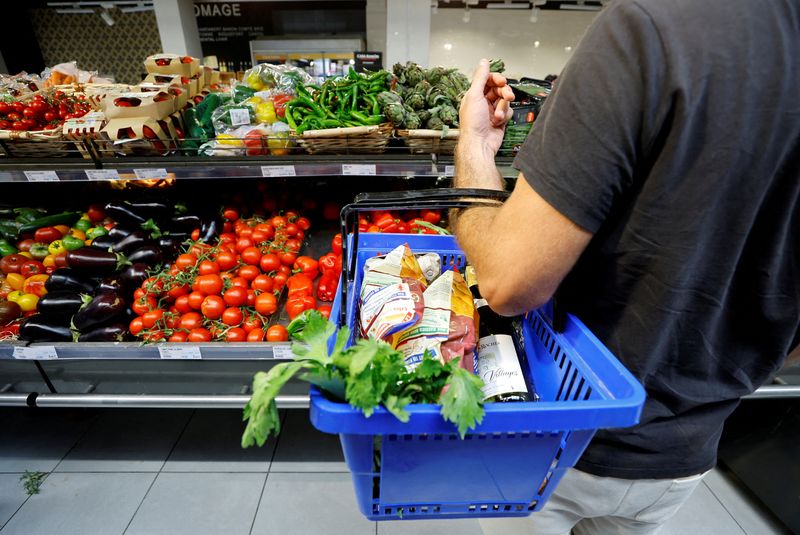FRANKFURT (Reuters) - Surging consumer demand across the euro zone is playing an increasing role in excessive inflation, a European Central Bank study showed on Friday, suggesting that - as some policymakers have feared - price pressures are becoming more entrenched.
Inflation, running at a record high of 10%, was initially driven by surging energy prices against which monetary policy is largely powerless but the role of this supply shock is now fading, the ECB said in an Economic Bulletin article.
"Over recent months, supply and demand factors have played broadly similar roles in (underlying) inflation," the ECB said.
"More recently the contributions of predominantly demand-driven components to services inflation have outweighed those of predominantly supply-driven components," it added.
Overall inflation is seen close to its peak now but its decline is likely to be slow initially, and a separate ECB survey indicated that consumers see rapid price growth for years to come.
Inflation expectations for the next 12 months remained steady at 5% while the median expectation three years ahead held at 3%, the ECB's Consumer Expectations Survey showed.

The bank targets inflation at 2% but its projections show price growth above target at least through 2024, and the accounts of its September policy meeting showed policymakers are now worried about self-sustaining inflation dynamics.
Policymakers, already engaged in the fastest policy tightening on record, are expected to raise interest rates by another 75 basis points on Oct 27.